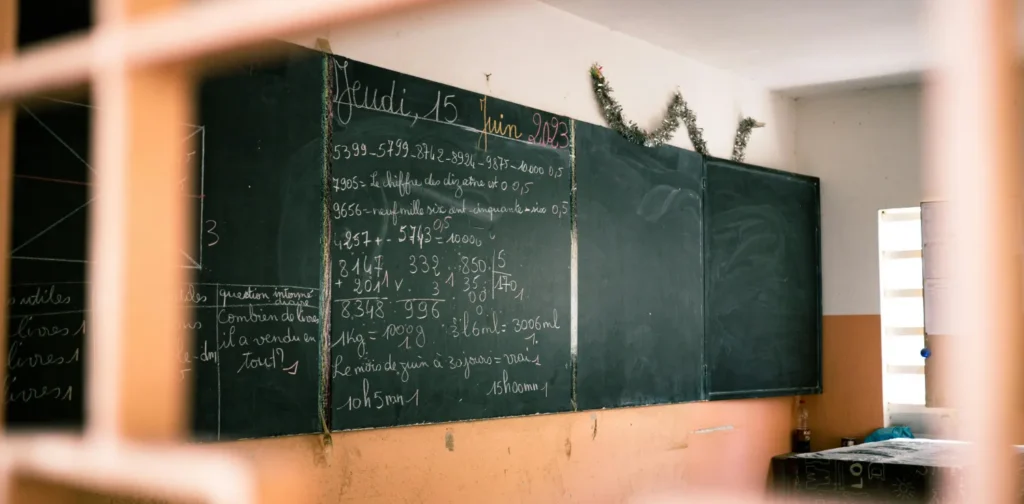Addressing Teacher Shortages to Achieve Quality Education for All

Photo: Amaury Michaux on Pexels.
Education is the key to a better future, which is why upholding the right to education for all is crucial. In this case, teachers have an essential role in supporting students’ quality learning. Unfortunately, teacher shortages are occurring all over the world, a pressing matter in the education sector that needs immediate attention and action.
Global Teacher Shortages
Teachers are the backbone of the education system, but their presence is often taken for granted. To bring quality education to the classroom, teachers must receive relevant training programs as well as be supported by fair wages and working hours. However, the lack of these factors has contributed to teacher shortages worldwide.
A 2024 report developed through a collaboration between UNESCO and the International Task Force on Teachers for Education 2030 aims to shed light on this issue. The first report of its kind, the Global Report on Teachers intends to bridge the data gap on the global, regional, and national data on teachers and provide suggestions on necessary policy interventions to address the issue.
Complex and Widespread Issue
On a global scale, the world will need 44 million additional primary and secondary teachers to achieve quality education for all by 2030, according to the Sustainable Development Goal (SDG) 4. While this is a widespread issue, the level of shortage differs across regions.
For instance, Sub-Saharan Africa requires 15 million additional teachers, the highest of the regions, whereas Oceania and Central Asia have the lowest numbers of 0.3 million and 0.7 million, respectively. Most of these teachers are required at the secondary level to replace existing teachers leaving the workforce.
Teacher shortages are influenced by various factors. Working conditions and incentives play huge parts in teachers’ motivations and willingness to stay in the profession. Crowded classrooms, which is also a clear indication of teacher shortages, can reduce teaching quality and impact teachers’ overall working conditions.
The report also finds that salaries for teachers remain unattractive, affecting teachers’ retention. For instance, teachers in 20 Sub-Saharan Africa earn less than $7,500 purchasing power parity per annum, which is mainly inadequate to meet their family’s basic needs.
Overall, the lack of data on teacher shortages makes it difficult to gauge the issue’s real trends and conditions. For instance, the lack of standards and data on teachers at various levels makes international comparison and benchmarking challenging, which, in turn, hinders strategic policy interventions. Similar data deficits are also found in teachers’ salaries and attrition.
Ensuring Quality Education for All
Teacher shortages have far-reaching consequences, including diminishing teachers’ wellbeing, exacerbating education inequalities, and increasing financial burdens on educational systems. Given the complexities of the issue, a holistic and multifaceted approach is required.
The report suggests that strategies to reverse teacher shortages must include ways to make teaching an attractive career pathway, such as by providing access to professional development. Moreover, inclusive policies that promote gender equality and diversity in teaching can encourage more people to remain and enter the profession. Increasing investment in education is also crucial to finance the sector, particularly to ensure competitive teaching salaries and fair working conditions.
Editor: Nazalea Kusuma

Kresentia Madina
Madina is the Assistant Manager of Stakeholder Engagement at Green Network Asia. She holds a bachelor’s degree in English Studies from Universitas Indonesia. As part of the GNA In-House Team, she supports the organization's multi-stakeholder engagement across international organizations, governments, businesses, civil society, and grassroots communities through digital publications, events, capacity building, and research.


 Risks and Opportunities of Submarine Communication Cables for Sustainable Development
Risks and Opportunities of Submarine Communication Cables for Sustainable Development  Rising Attacks and Violence Against Land and Environmental Defenders
Rising Attacks and Violence Against Land and Environmental Defenders  Unveiling Potential Technological Risks amid Global Crises
Unveiling Potential Technological Risks amid Global Crises  Waste-to-Methanol, a Potential Sustainable Solution for Waste and Energy
Waste-to-Methanol, a Potential Sustainable Solution for Waste and Energy  In Peru, Stingless Bees Are Granted Legal Rights
In Peru, Stingless Bees Are Granted Legal Rights  Looking into the Government Regulation on the Protection and Management of Mangrove Ecosystems in Indonesia
Looking into the Government Regulation on the Protection and Management of Mangrove Ecosystems in Indonesia